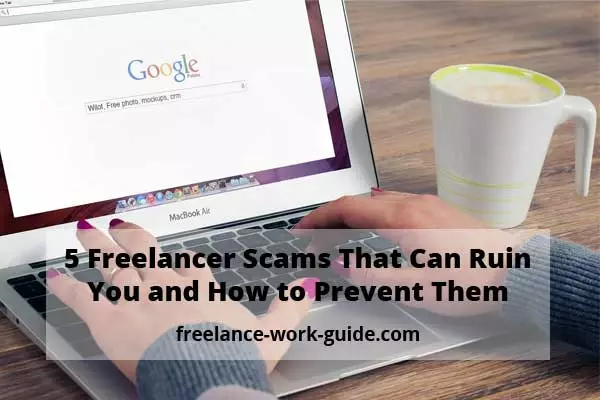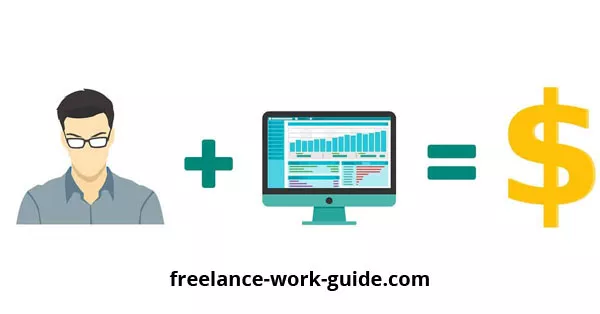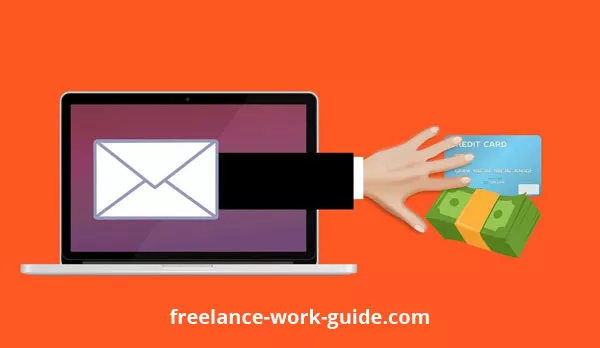
The number of freelance job opportunities is increasing, but so are fraudsters and scammers. Whether they operate singly or collectively, one thing is sure: once it hits you, you can lose everything—from your job to your brand.
While you cannot control the growth of freelancer scams, you can reduce the likelihood of becoming a victim. It begins by knowing “the baits.”
1. Pay Before You Work
Pay-before-work schemes are easy to spot. They usually appear as ads that offer lucrative, high-paying jobs. To sweeten the pot, they position these types of work as “easy” or “quick.” But there’s a catch: you need to pay.
The supposed fees are mostly a few dollars, so they don’t hurt the pockets. Come to think of it, though, what if 50 people paid $15 for “exclusive access” to work? That means the industry just lost $750 in one go. Now imagine if they fool the same number of people for months or years. Do the math.
How to Avoid It: Don’t sign up! Online, you’ll find dozens of legitimate freelancer sites that let you access hundreds of jobs for free.
2. Pyramid Scheme
To be clear, multi-level marketing (MLM) isn’t the enemy here, but these days, joining one is treading on murky waters. You don’t know what you’re going to step on—and then hurt your foot.
What makes them prone to being tagged as freelancer scams? A related keyword to MLM is the “pyramid scheme,,” which is the one that’s going to bleed you dry. In freelancing, it may work this way:
- The recruiter will offer you the “fastest way to earn money.” Usually, the positions may use terms like “sales executive,” “online entrepreneur,” or “brand ambassador.” The ad may have a sense of urgency that you won’t have any other choice than to grab it. Otherwise, you’ll miss the “chance of a lifetime.”
- The recruiter may then go in slow or quick. The slow method may involve signing you up to a webinar or a virtual presentation to learn more about the brand or the product. The fast one is they will give you the products to sell immediately.
- But they don’t limit themselves there. Along the way, they may compel you to buy more inventory than you can manage. They may encourage you to “invite more people into the business” since it offers higher returns.
Even the Federal Trade Commission (FTC), however, admits that only the people at the highest of the pyramid earn money. The others below may end up with a significant financial loss.
How to Prevent It: Not all MLM companies are into pyramid schemes. You can begin by researching more about the business. How long has it been? What is its reputation? Are there any reports about it in the FTC or the Better Business Bureau (BBB)?
You also have to consider the products they are selling. If these are supplements, for example, do they have the approval of the Food and Drug Administration (FDA)? If they’re offering investment returns, did their certification from the Securities and Exchange Commission (SEC) allow it?

3. Affiliate Marketing Scams
Some freelancers may work on affiliate marketing accounts, or they may do this as a side business. Whatever they decide, that doesn’t make them immune to a lot of affiliate marketing scams. One of the most popular ones is the earnings promise.
What is it? Have you ever seen an ad or a job post that promises X thousands of earnings in a month? While some affiliate marketers are earning thousands or even millions of dollars a year, they didn’t achieve it overnight.
Usually, their success is a combination of a lot of failures and trials and errors. Besides, no business, including affiliate marketing, offers any guarantees, more so highly specific earnings.

How to Prevent It: Trust your instinct. If it’s too good to be true, then it probably is.
4. Phishing Attack
Phishing scams are not exclusive to select industries—it can affect anyone, including freelancers. It may happen when you see a job ad that asks you to register your name online. It may also ask you for other information, such as your PayPal address, where they’re supposed to deposit your payment.
The ad can sound harmless or even polished and professional enough. If you need more work, then it is also a logical proposition. What you don’t know is the system will steal these data. They can use them to access your financial records, such as your credit card number.
About 1 in every 99 emails can be a phishing attack. In 2018, these cyberthreats were responsible for over 80% of damages. Around 50% of businesses suffered from a damaged reputation.

How to Prevent It: First, make sure your antimalware program is running well. You may also install a popup blocker, especially in your browser. As for your email address, an anti-virus program may prevent the system from downloading the malicious attachment or link immediately. Most of all, be wary of emails and forms that ask you to send financial-related information, such as your PayPal account or bank account number.
5. Non-Paying Client Scam
Of the different freelancer scams, this is probably the most common and even the most classic. However, it’s also not the easiest to detect for the following reasons:
- The freelancer may not have all of the client’s details. The ones they provided may not even be real.
- The client can open a different account or assume a new identity anytime.
- Ads or job posts can sound realistic. They may even get plenty of responses from legitimate freelancers.
- Some clients may pay for the first few projects, so freelancers may not attribute the non-payment as a scam immediately.

How to Prevent It: Conduct due diligence before anything else. If you found the employer in a freelancing site, read the reviews. Otherwise, Google their names and businesses. If you cannot find any information, then that’s a red flag for you.
Sometimes the client is a new business, which may not have enough online information available. The next best option is to know how much you’re willing to lose in case they don’t pay.
As much as possible, don’t accept tedious, time-consuming, and high-paying projects without asking for a down payment. It can be between 30% to 50% of the client’s budget.
As competition in the freelance industry becomes fierce, you may feel desperate and anxious to get the next job you see. Being rash and impatient, though, may only increase your risk of falling into freelancer scams.
In the end, it’s still better to wait than to lose a lot in the process. It includes your hard-earned money, reputation, and even current job.
Author Bio:
Peter Keszegh is the founder of OnlinebizBooster, a digital marketing website and blog. He authors in-depth guides that teach online biz owners ways to grow, manage and scale their business. When he is not doing all those, he loves trying out new things and discovering new places. If you want to learn modern marketing strategies, head over to his website – OnlinebizBooster.













